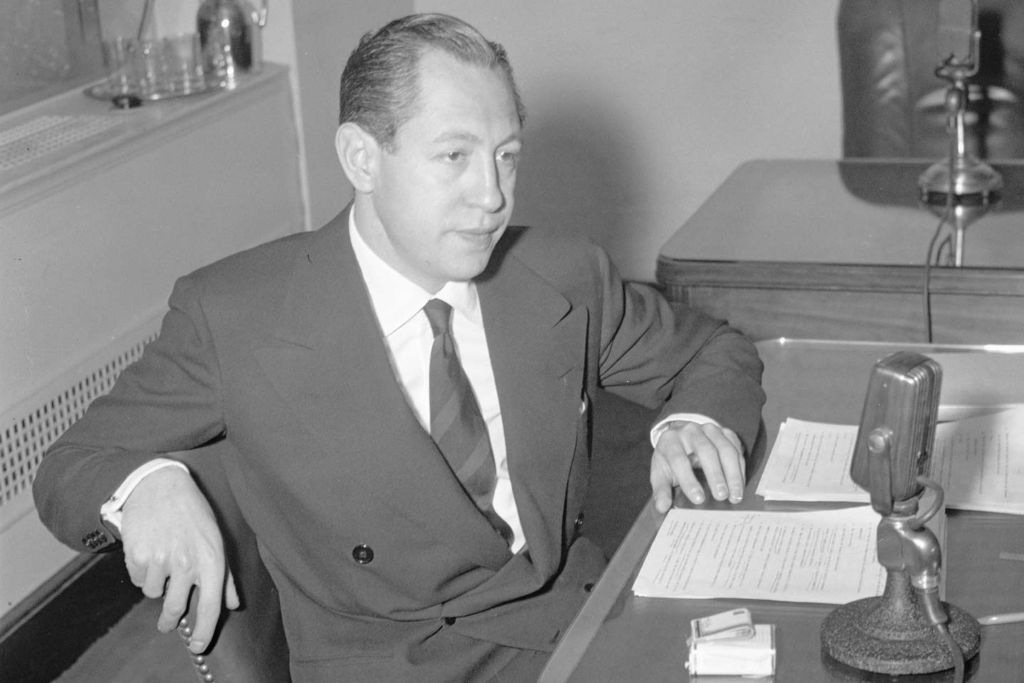
Though seldom remembered, even by the struggling company he turned into a giant, William S. Paley is one of those entrepreneurs that without, the world would be a wholly different place. In this case, for the worse.
A radio and TV broadcasting pioneer, Paley helped turn CBS from a struggling radio network of only 16 stations into the diversified, multinational conglomerate it is today, leading in some form or another for over 60 years!
Early Life
William Paley was born on September 28 1901 in Chicago, Illinois as the eldest of two children born to Ukrainian Jewish immigrants Samuel “Sam” Paley and his wife, Goldie (née Drell).
Both of his parents had been born in modern-day Ukraine and had migrated to the US in 1892 and 1894 respectively, where they’d married on January 10 1899.
In 1896, Samuel founded the Congress Cigar Company with the help of his younger brother Jacob. Initially a small operation, the company’s cigars became increasingly popular at the turn of the 20th century, making both brothers millionaires.
Aside from using it to live comfortably, the brothers used the company’s profits to acquire rival cigar brands, soon making the Congress Cigar Company one of the largest cigar manufacturers in Chicago.
Groomed to one day inherit his family’s company, Sam Paley ensured his son got the best education possible, with William first attending the Western Military Academy in Alton, Illinois and then onto the Wharton School at the University of Pennsylvania.
Whilst at Wharton, Paley was a member of the Theta chapter of the Zeta Beta Tau Jewish-only fraternity. Later in his life, Paley would describe the Western Military Academy as the “turning point of my life”.
Apart from gaining a world-class education, Sam Paley ensured that his son had practical, hands-on experience in every department of the company he was set to inherit from an early age, so that when he inherited the company, he’d already be an experienced executive.
In the late 1910’s and early 1920’s, the company experienced an even bigger boom than it had a decade prior, forcing William’s father and uncle to be constantly out of town on business. Sensing an opportunity to let William learn the ropes of management, they decided to leave the teenaged William in charge.
At first, however, this move didn’t sit well with some of the company’s employees, who didn’t like a teenager telling them what to do, leading them to strike the first time William was left in charge.
Though he could’ve recalled his father and uncle to fix the issue, William quickly resolved the issue, gaining the respect of the employees who had rejected him, as well as the admiration of his father and uncle who’d left him in charge and convince them to make it a policy.
Whenever they were both out of town, William was the boss.
Encountering CBS
On one of these trips, in the summer of 1925, William became familiar with radio advertising and decided to experiment with it: if it went well, no one would complain, it went poorly, they’d never do it again.
For $50, William sponsored an hour-long segment, including a singer (the famed Kate Smith) and orchestra, on Philadelphia radio station WCAU (now WPHT) which he called La Palina Hour after the La Palina brand of cigars his family company owned.
Upon their return, Sam and Jakob Paley reviewed William’s expenditures and discovered the $50 William had spent on advertising and were furious. To them, it was a complete waste of money and they cancelled their sponsorship immediately.
What they hadn’t counted on is just how much WCAU’s listeners enjoyed La Palina Hour. Immediately following the end of La Palina Hour listeners wrote in to tell the station and the former sponsor just how much they missed the segment.
By some accounts, the mail room at La Palina’s factory was overflowing with these letters.
Hearing about this, Sam, Jakob and William Paley looked at La Palina’s books and found that during the few weeks the segment had aired, sales of La Palina cigars had risen considerably.
Realizing this was solely because of La Palina Hour the Congress Cigar Company became the largest advertiser on the network by far, sponsoring new segments such as Kate Smith and Her Swanee Music – the successor to La Palina Hour once again hosted by Kate Smith.
Acquiring CBS
By being the largest advertiser on WXAU, William and Sam Paley became familiar with Columbia Phonographic Broadcasting System, a struggling radio network of 16 stations including WCAU.
In early 1928, the owners of Columbia Phonographic wanted out due to high operating costs and approached the Paleys, as well as their in-laws, brother Isaac and Leon Levy (Leon was married to William’s younger sister, Blanche) about acquiring the network.
Interested in acquiring it as a consortium – the Paleys brought the money and the Levys brought the knowhow (they owned WCAU) – the deal was completed not long after.
Broadcasting Pioneer
Later Life (Collapse/Loss of an Empire)
Death
How Can I Replicate What William S. Paley Did?
What Can we Learn From William S. Paley?
Though he passed away 30 years ago, and the world has changed beyond recognition since, the life of William S. Paley can still teach you quite a lot. Not just about starting and running your own business, but also life in general too.
Your Life Never Goes as You Think it Will
Give Back
Always Innovate
Forget Every Snub
A Ukrainian Jew in a time when antisemitism was still very much present, William S. Paley faced the same issues fellow Jewish media mogul, Joseph Pulitzer, had half a century prior: he was barred from almost everything.
Despite being at the helm of one of the largest media conglomerates in the US at the time and having all the wealth that accompanies it, Paley’s Jewish ancestry barred him from many of the social and country clubs his non-Jewish counterparts could join.
Whilst he could’ve easily used his incredible media empire to point this fact out to the American people, and almost force them to capitulate or risk public opinion turning against them and their members, William did nothing.
Instead of buying a house in one of Long Island’s most prestigious neighborhoods to host lavish parties that would have guests such as the Vanderbilts, Rockefellers and Astors, William built a house on Squam Lake, New Hampshire.
Though not as prestigious as Long Island, William was able to host extravagant parties in the summer that were frequented by such celebrities like Grace Kelly, Lucille Ball and David O. Selznick, not Old Money elites. Much to their dismay.
Has the life of William S. Paley inspired you? Tell me in the comments!
